Unpacking the EU’s role in peacebuilding
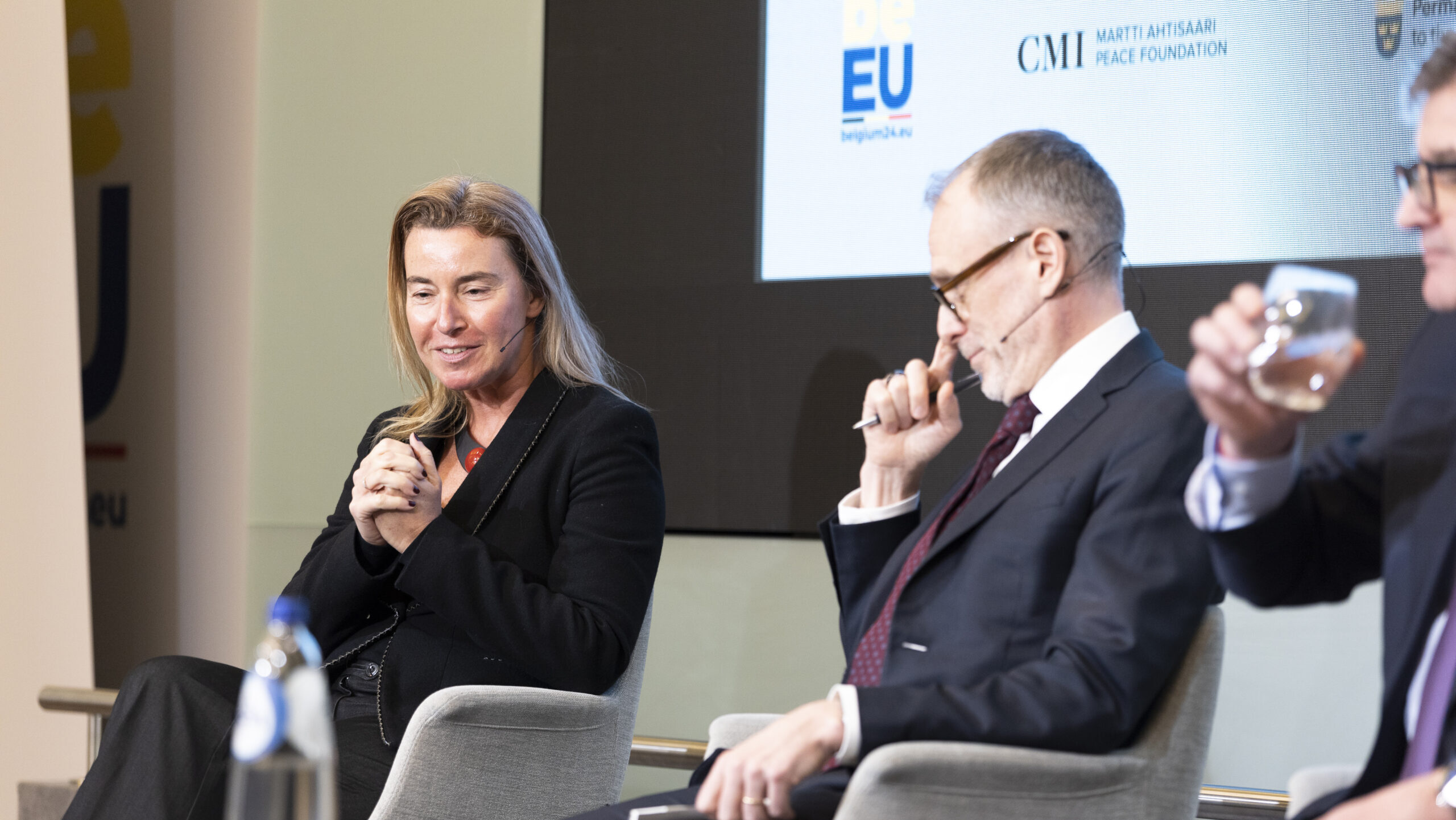
Federica Mogherini, Amb. Janne Taalas and Miroslav Lajčák.
Where does peace fit into the new and evolving European security architecture? CMI commenced the new year with a high-level dialogue in Brussels, weighing the implications of Europe’s heightened focus on security and defence for the EU as the world’s largest peace project.
This year’s CMI Brussels High-Level Dialogue set out explore why and how peace should be a priority for the new European Commission. CMI organized the event in cooperation with the Permanent Representation of Sweden to the EU under the auspices of the Belgian Presidency of the Council of the European Union.
Ambassador Stéphane Mund, the Permanent Representative of Belgium to the Political and Security Committee of the EU, and Ambassador Ingrid Ask, the Permanent Representative of Sweden to the same Committee, both attended the event to give opening and closing remarks.
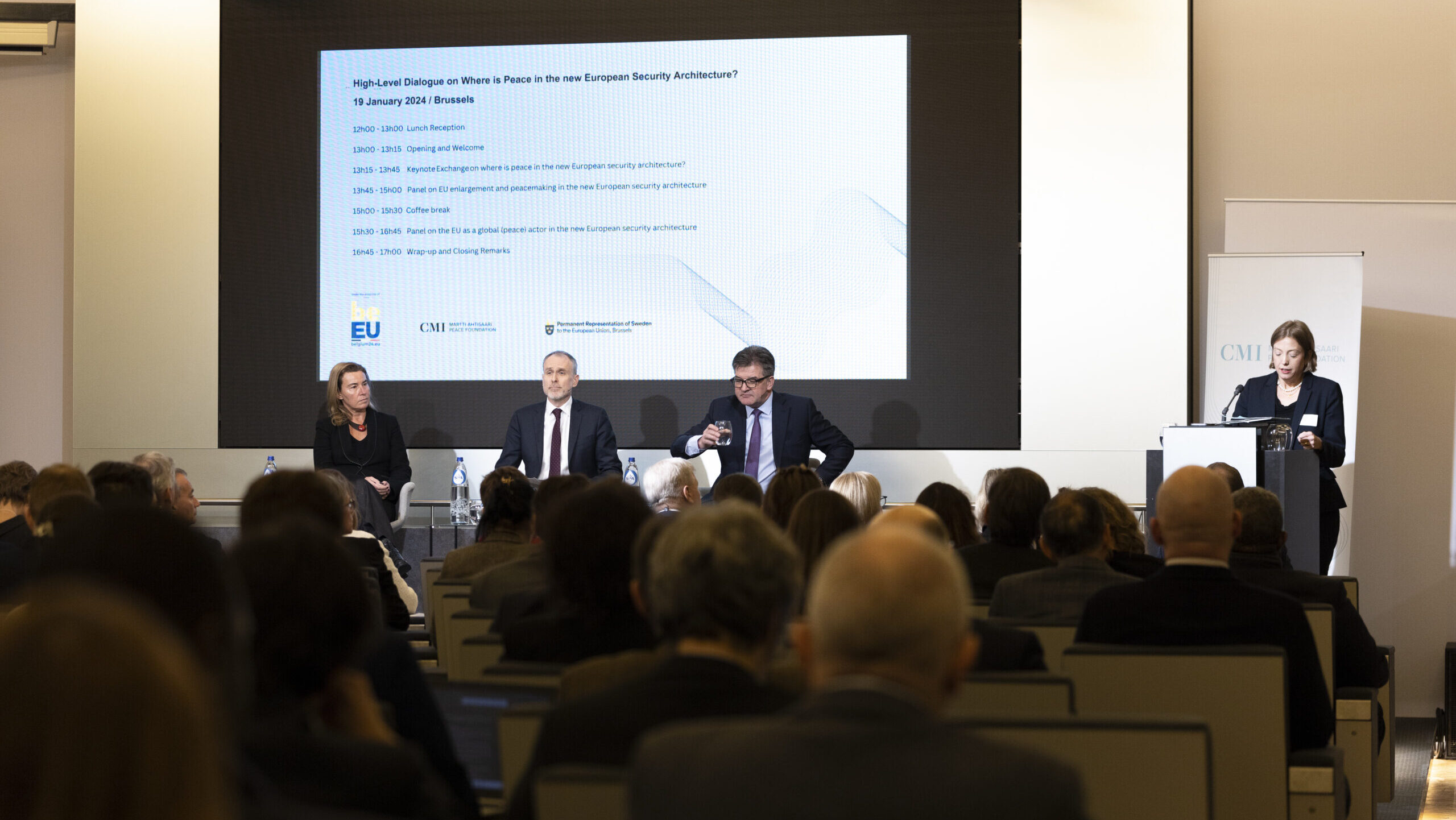
Dr Jibecke Jönsson, Head of CMI’s Brussels office, giving her opening remarks.
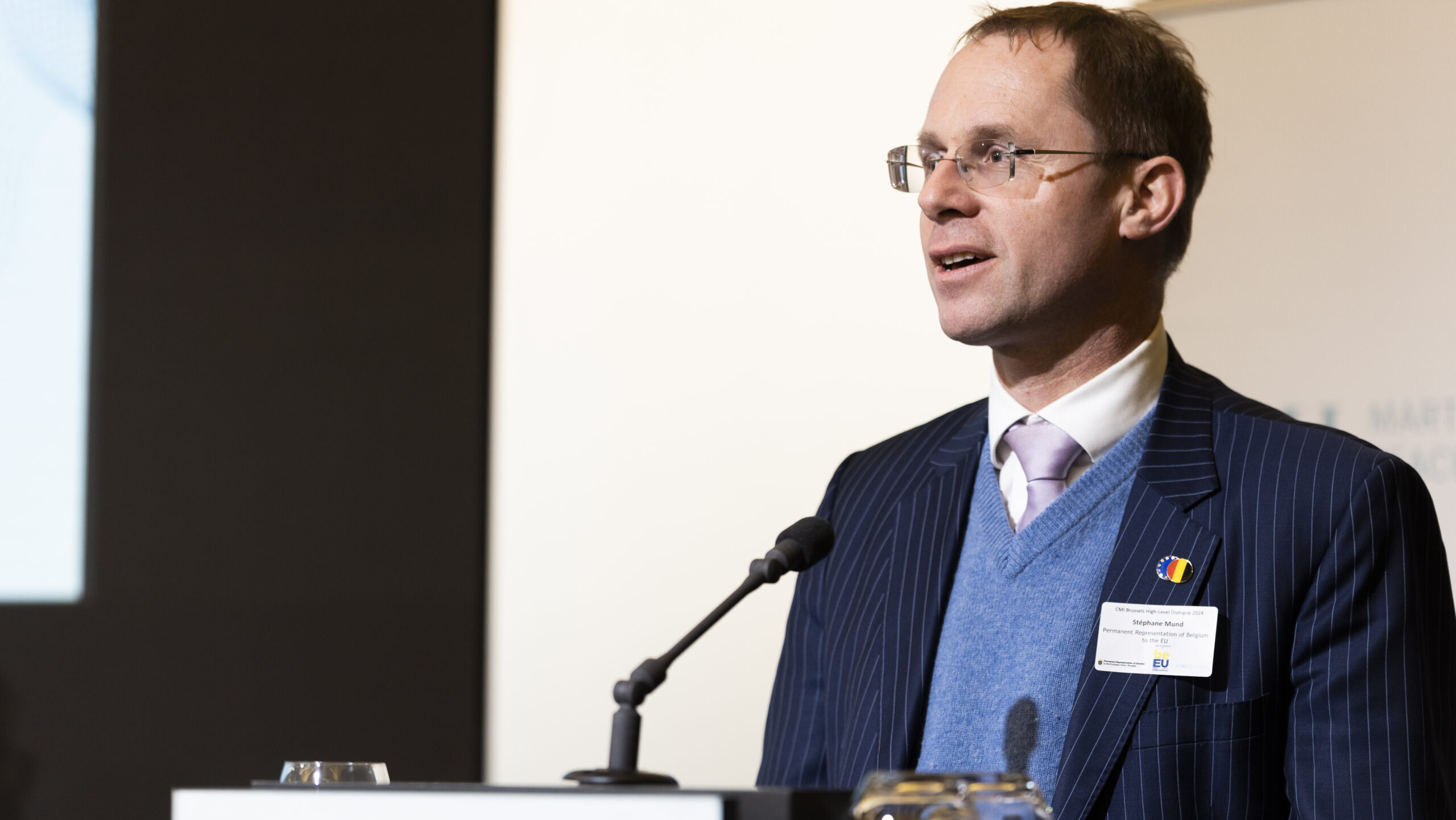
Ambassador Stéphane Mund.
CMI’s high-level dialogues aim to approach key questions in Brussels from a different and unique perspective, bringing in new views and voices to topical discussions. Alongside a keynote exchange with Federica Mogherini, Rector of the College of Europe, and EU Special Representative Miroslav Lajčák reflecting on the status quo and future prospects, the event featured two panels.
In her introductory remarks, Jibecke Jönsson, Head of CMI’s Brussels office, emphasized that although there are significant EU policy advancements in peace mediation, the broader political agenda does not fully prioritize peace.
Ambassador Stéphane Mund saw the Belgian Presidency of the Council as an opportunity to look forward in the midst of a watershed and defining moment for European politics. Belgium will prioritize stability, security, and strategic reflection, and promote peace in regions such as the Middle East and Africa.
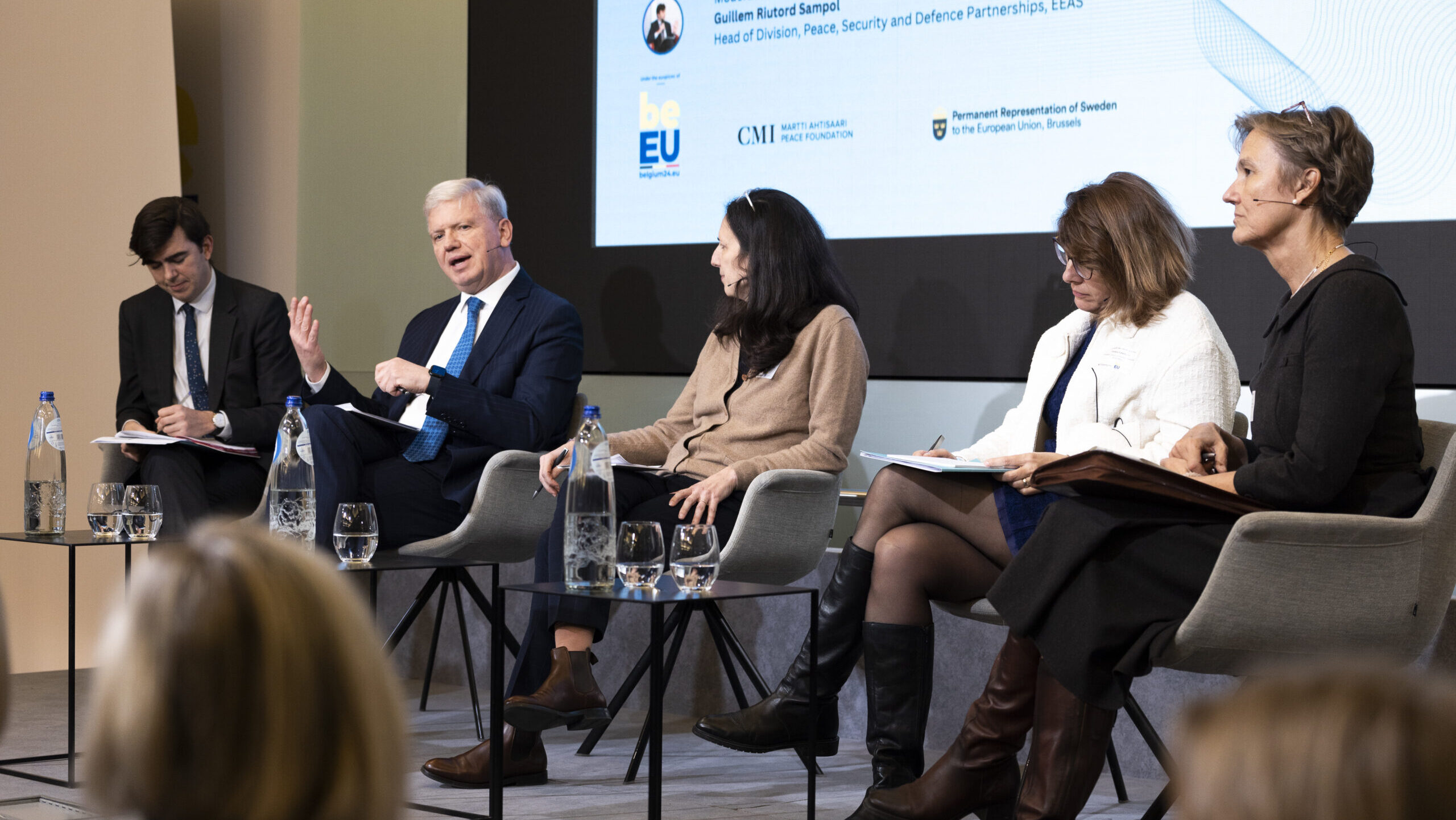
The panel on EU enlargement and peacemaking was moderated by Guillem Riutord Sampol from the EEAS. From left to right: Guillem Riutord Sampol, Štefan Füle, Dr Stephanie Hofmann, Vessela Tcherneva, Ambassador Anka Feldhusen.
The first panel delved into EU enlargement and peacemaking: how should the EU use enlargement to secure its geopolitical role in promoting peace? The panelists seemed to agree that enlargement is and has been a geopolitical process for the Union with a commitment to peace at its core. What is changing is the premise and assumptions of peace.
Attention was also called to the fact that the European security architecture involves a whole ecosystem of organizations with overlapping mandates and memberships, including Nato, the OSCE, and the European Political Community. Concerning the EU’s increased focus on defence, the assertion was made that security posturing and pushing for peace are not contradictory but can be mutually reinforcing and interdependent. The challenge is in striking a balance between soft and hard power.
The second panel concerned the EU as a global peace actor. Considering the multitude of ongoing changes, from emerging powers to AI and connectivity with a simultaneous weakening of multilateralism, should Europe try to “set the scene” or act more as a navigator in the evolving geopolitical landscape? There was a consensus among panelists over the need for Europe to consider nuanced and tailor-made approaches in different contexts, such as Ukraine, the Middle East and Africa.
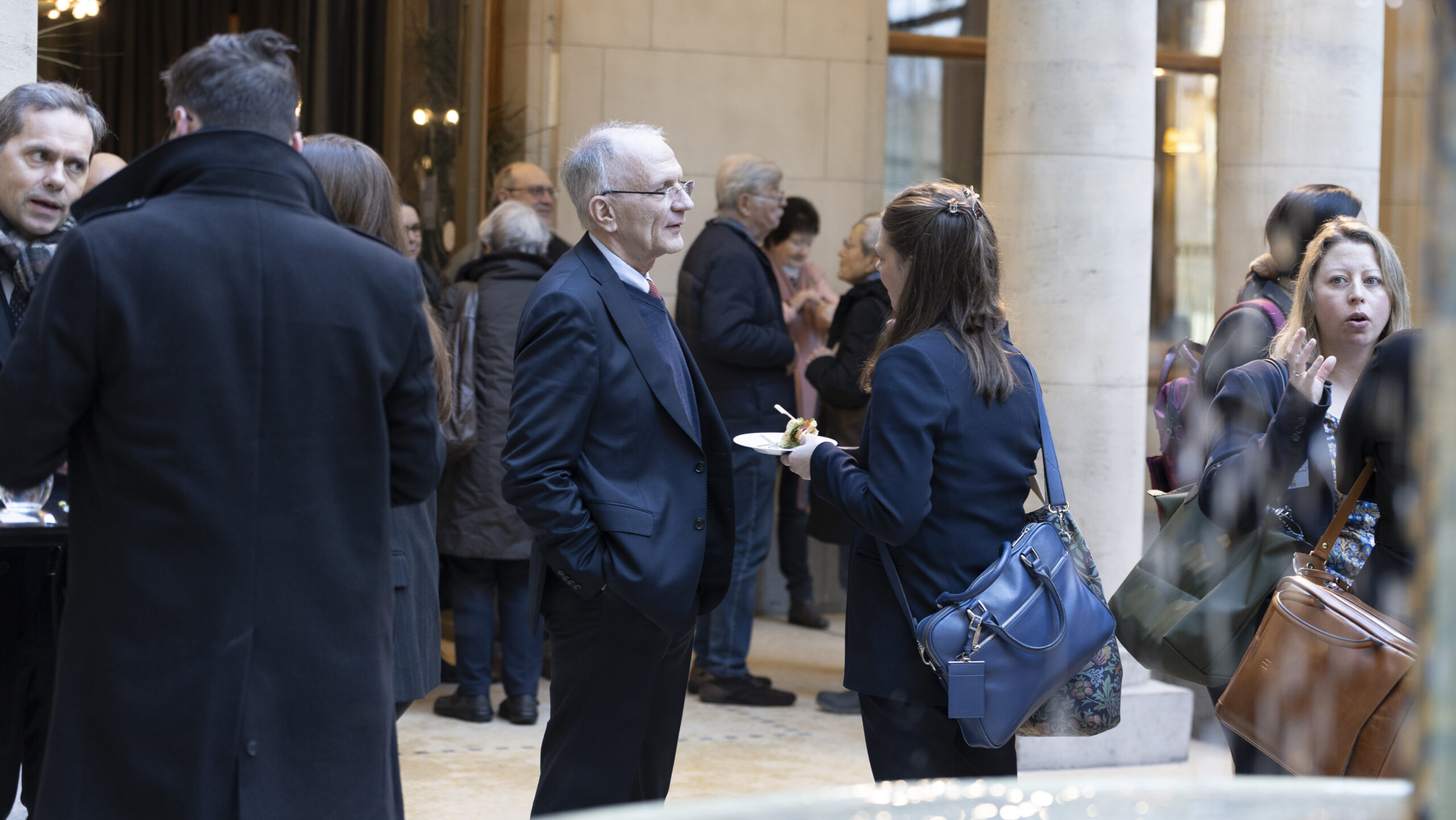
The event took place at the Résidence Palace in Brussels.
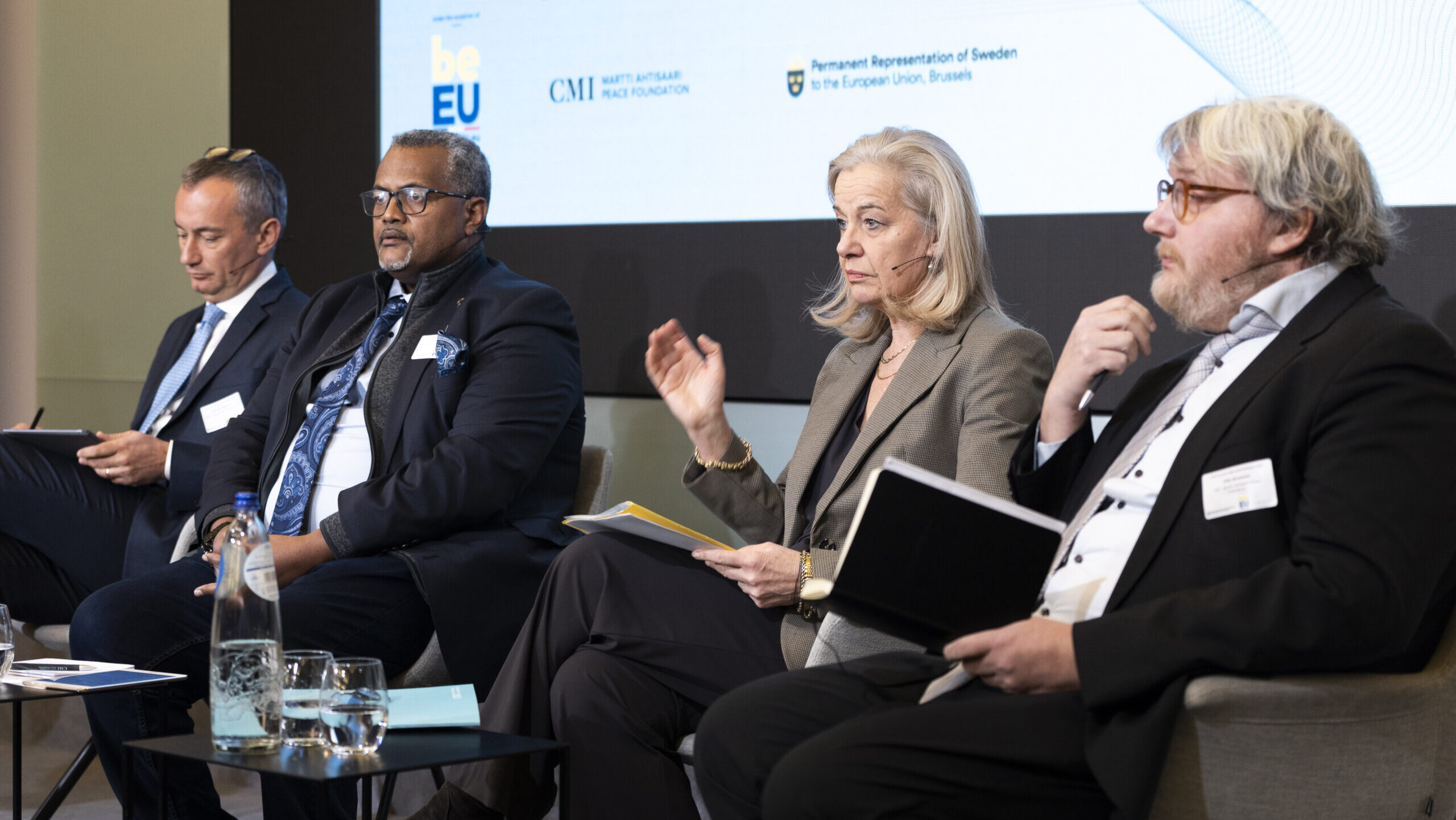
The second panel concerned the EU as a global peace actor. The panel was moderated by Dr Chris Coulter from the Berghof Foundation. From left to right: H.E. Nickolay Mladenov, Dr Abdeta Dribssa Beyene, Ambassador Stella Ronner-Grubačić, Dr Ville Brummer.
Questions arose regarding Europe’s approach to imposing its norms on other regions amidst increasing competition and challenges. The EU must come to terms with matters such as the Ukrainian cause not being at the top of the agenda in some African countries. The Union needs to find ways to build new partnerships based on shared understanding and mutual benefits, while preserving its founding principles and values.
In her closing remarks, Ambassador Ingrid Ask emphasized that EU enlargement is an investment in peace, security, stability, and prosperity. She also highlighted one of the EU’s key strengths: its integrative approach, which provides it with numerous tools at its disposal. Hanna Klinge, Deputy CEO of CMI, expressed confidence in the quality of the discussions, noting that many aspects called for during the event, such as listening and treating everyone equally, would resonate with the late President Martti Ahtisaari.
Photos and article: Kim Haldin / CMI